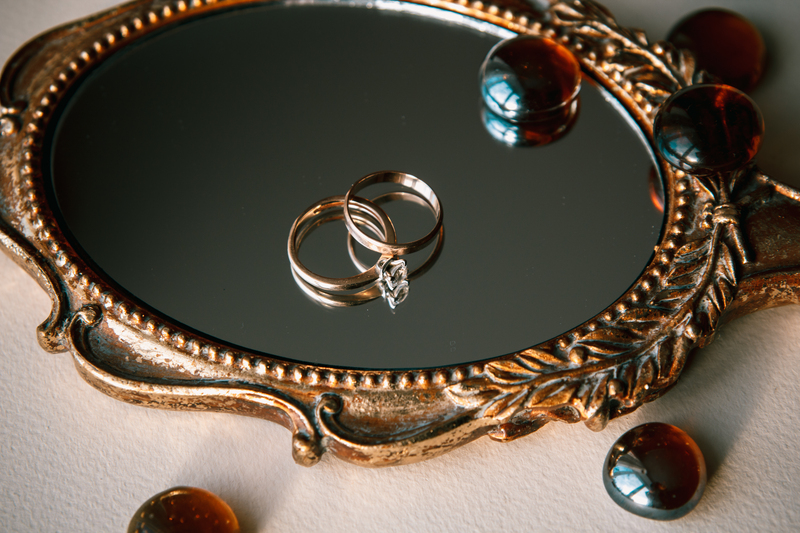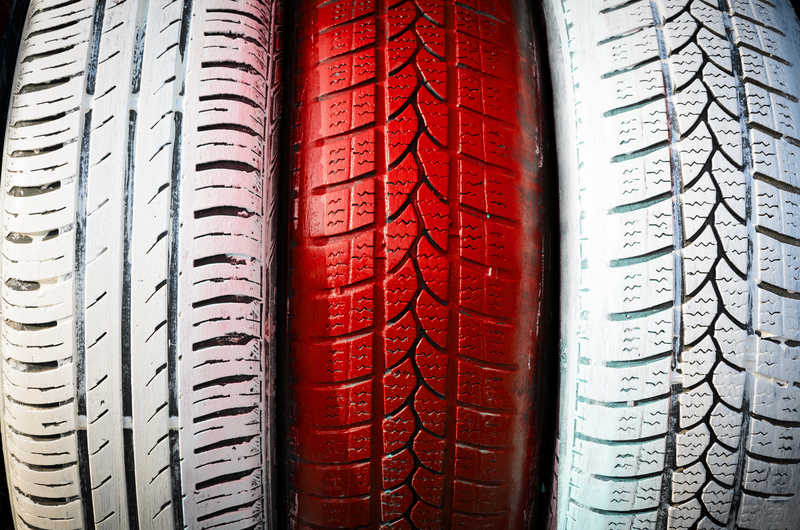Saying Farewell to Your Pots and Pans in a Planet-Friendly Fashion
As our kitchens evolve, so too do our pots and pans. Whether your trusty saucepan is warped, your nonstick skillet is flaking, or you simply want to upgrade, chances are you'll eventually wonder: What is the most planet-friendly way to let go of old cookware? In this comprehensive guide, we'll explore sustainable cookware disposal, from recycling and upcycling to donation and responsible trashing. Join us as we uncover innovative, eco-conscious options for giving your tired kitchenware new life.
Why Say Goodbye the Eco-Friendly Way?
Before tossing that scratched frying pan into the garbage, it's worth considering the environmental impact. Cookware is often constructed from sturdy materials like aluminum, stainless steel, copper, or cast iron - each requiring significant energy and resources to extract and manufacture. Throwing these items into landfill not only wastes valuable materials but often results in long-term environmental harm.
- Metals can take hundreds of years to break down
- Non-stick coatings may leach harmful chemicals into the soil and water
- Most cookware is not biodegradable
Choosing a planet-friendly cookware farewell isn't just good for the earth - it can also benefit your community and even help you start your next kitchen adventure on the right foot.

What to Do with Old Pots and Pans?
There are several eco-friendly options to consider before you say goodbye to your favorite pots and pans. Depending on their condition, you might choose to donate, recycle, upcycle, or dispose of them responsibly.
1. Recycling Your Old Cookware
The most sustainable way to bid farewell to old pots and pans is often through recycling. However, the process depends greatly on the material.
- Stainless Steel and Aluminum: These are widely accepted at metal recycling facilities. Remove any plastic or rubber handles if possible.
- Copper Cookware: Solid copper pans (without non-stick coatings) are valuable to metal recyclers. Scrap yards may even offer cash based on weight.
- Nonstick and Coated Pans: These are trickier. Most municipal programs don't accept Teflon-coated items due to the chemicals involved.
- Cast Iron: Cast iron cookware is 100% recyclable and highly prized at scrap yards.
*Tip: Call your local recycling center and ask about their policies for pots and pans. Many have special instructions for accepting cookware, especially non-stick varieties.
2. Donating Old Pots and Pans
If your cookware is still in functional, safe condition, sharing it is a fantastic planet-friendly farewell. By donating, you extend its life, help those in need, and reduce demand for new products.
- Charity Thrift Stores: Goodwill, Salvation Army, and local thrift stores often accept gently used cookware.
- Homeless Shelters or Community Kitchens: These organizations are always in need of durable pots and pans for meal prep.
- College Students & Young Adults: Moving into a first apartment? Hand-me-down cookware is priceless!
*Tip: Wash thoroughly and check for chips, cracks, or loose handles before donating.
3. Upcycling and Creative Reuse
When cookware has outlived its culinary life, upcycling can be a fun and environmentally responsible alternative to pitching it.
- Garden Planters: Old saucepans, pots, and even kettles make charming rustic planters for herbs or flowers.
- Storage Solutions: Deep pots can become holders for utensils, paintbrushes, or office supplies.
- Outdoor Decor: Cast iron pans can be repurposed as birdbaths or quirky wall hangings.
- Candle Molds or Art Projects: Use pans as molds for homemade candles or as canvases for playful painting.
With a little imagination, your worn-out cookware can have a second life and even become a conversation piece!
4. Responsible Landfill Disposal
If recycling, donation, and upcycling simply aren't possible, ensure your cookware is disposed of as responsibly as possible. Some nonstick-coated pans must be placed in general waste, but always remove and recycle any metal parts. Contact your city's waste management department for best practices; some offer household hazardous waste collection days for Teflon-coated or ceramic pans.
How to Recycle Cookware: Step-by-Step
Ready to send your pots and pans on their eco-friendly journey? Here's a detailed process to ensure you do it right:
- Inspect the cookware - is it still serviceable? If so, donate or gift it!
- Disassemble any multi-material parts. Unscrew and remove non-metal handles or glass lids (these must be recycled separately).
- Contact your local recycling center - Confirm if they accept cookware and any conditions (such as only accepting ferrous metals or specific coatings).
- Transport your sorted, clean pots and pans to the facility.
- Deposit in the designated scrap metal or recycling bin, following site instructions.
Eco-Friendly Cookware Upgrades: Choosing Planet-Positive Options
After saying your sustainable goodbyes, perhaps you're ready for new gear! When shopping for environmentally conscious pots and pans, look for:
- Durable Construction: Stainless steel, stovetop-safe glass, and cast iron last for decades with care.
- Recycled Content: Brands like GreenPan, Made In, and even All-Clad offer lines made from recycled metals.
- No Harmful Coatings: Prefer uncoated, ceramic, or newer PFAS-free nonstick technologies.
- Repairable Design: Riveted handles and simple forms are easier to repair than welded or glued pieces.
- Brand Take-Back Programs: Some companies allow you to return old cookware for recycling or refurbishing when you buy new.
With eco-friendly manufacturing and longer lifespans, these choices keep more pots out of landfills in the future.
Common Questions About Cookware Disposal
Can Nonstick Pans Be Recycled?
Generally, traditional nonstick pans (with Teflon) are difficult to recycle due to chemical coatings. However, some specialty recycling programs and manufacturers will accept them, so check locally. Always remove and recycle aluminum or steel components separately if possible.
What About Ceramic Pots and Pans?
Pure ceramic cookware (without metal core) is usually not recyclable in municipal systems, but some tile or building material recyclers might accept it. Ceramic-coated steel pans should go to metal recycling after separating any non-metal parts.
Is It Bad to Throw Pots and Pans in the Trash?
Tossing cookware in the trash should be the last resort. Metal waste in landfills is a missed opportunity for recycling, and nonstick coatings can introduce pollutants as they degrade.
How to Know When to Replace Cookware
Responsible stewardship of your kitchen means knowing when it's truly time to say goodbye to your pots and pans. Here are a few signs:
- Warped or Cracked Bases: This can hinder even cooking and pose safety risks.
- Chipped or Peeling Coatings: Especially for nonstick, as flakes may end up in your food.
- Loose Handles or Unstable Pieces: Risky for burns and must be fixed or replaced.
- Persistent Rust or Deep Stains: Some surface rust on cast iron is fixable, but severe pitting or corrosion isn't safe.
Keeping cookware long-term is eco-friendly, but damaged pans should be retired - and replaced thoughtfully.

Global Sustainable Initiatives & Brand Programs
Curious how industry leaders and communities support planet-minded cookware disposal? Here are a few inspiring programs:
- TerraCycle's Cookware Zero Waste Box - Ship old pots and pans (any brand/material) to TerraCycle for specialized recycling.
- GreenPan "Forever Green" Program - Accepts any GreenPan product at end-of-life for recycling and responsible disposal.
- Local Scrap Metal Drives - Cities around the world offer annual days when residents can drop off scrap metal, including cookware, for recycling.
- Thrift Store Partnerships - Some retailers, like IKEA or Habitat for Humanity ReStores, accept old kitchenware for resale or community kitchens.
Pro tip: Always ask your favorite cookware brand if they offer take-back, repair, or recycling services before purchasing.
Final Thoughts: Making the Goodbye Count
The next time you need to part ways with a frying pan or a battered soup pot, remember that your choices matter. By saying farewell to your pots and pans in a planet-friendly fashion, you help conserve resources, support your community, and reduce waste. Whether you choose to donate, recycle, upcycle, or responsibly dispose of your cookware, you're making a positive impact.
It's never been easier to embrace sustainable cookware disposal. With a bit of planning and creativity, your loyal kitchen tools can serve the earth as well as they've served you!
Want to learn more about green living in the kitchen? Explore our other guides for eco-friendly upgrades and join the movement for a better, greener future - one pot at a time.